
Japanese culture can get pretty weird when looking at it from an outside perspective. LIVE JAPAN asked different people about their thoughts about the culture of Japan, and about their personal culture shocks. This time, a woman from the United States, living in Japan for a long time, talks about her unique experience.
1. The Weird Tastes and Names of Original Japanese Food
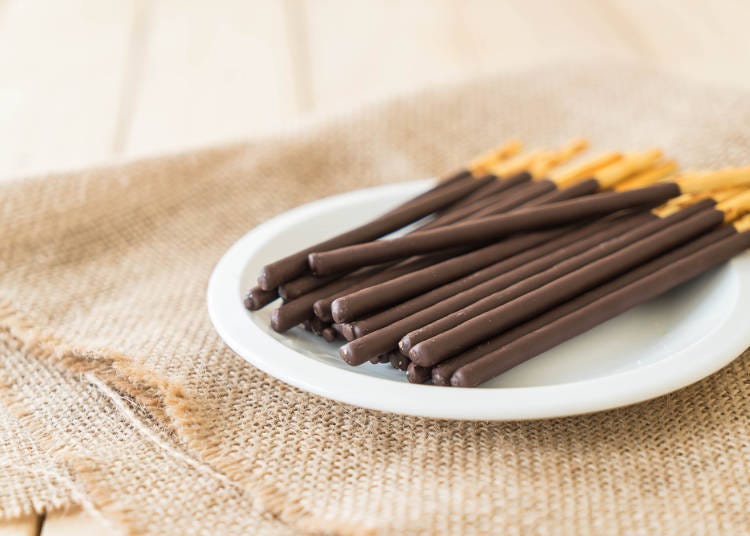
Japanese food is one of the things that is responsible for one or the other culture shock. Naturally, a lot of Japan’s dishes have their roots in American food culture but usually are uniquely arranged and can taste rather different from their counterparts in the States – at least for someone who is used to the American taste!
“McDonald’s tastes the same, of course, but it is interesting to see that Japan’s McDonald’s offers very Japanese things like the matcha milkshake or McFlurry. The pumpkin fries for Halloween or the chocolate sauce fries, for example, aren’t sold in the States at all! In general, Japan has a lot of unique snack and chocolate variations, especially KitKat. There are so many KitKat varieties here, and they make for excellent souvenirs, I think. The one thing that surprised me the most are the Pocky varieties, though. “Men’s Pocky,” what even is that? Why do you need Pocky specifically targeted towards men? I still don’t understand that.”
2. Why is Japanese Peanut Butter Sweet?
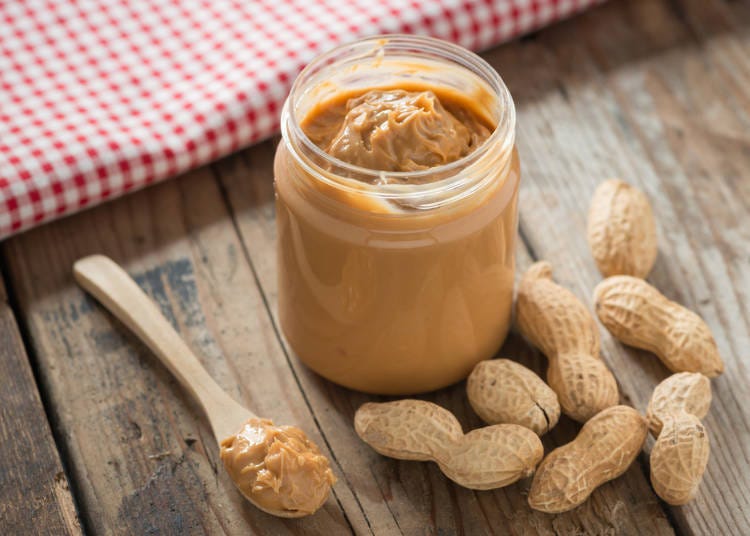
“Peanut butter is sweet in Japan, which really took me by surprise! In the United States, peanut butter is salty, so we naturally tend to eat it with sweet jam. Americans like this salty-sweet flavor combination, I think, so snacks such as caramel popcorn and salted peanuts are popular. Maple bacon donuts were also a trend recently.”
3. Tips Getting Refused?
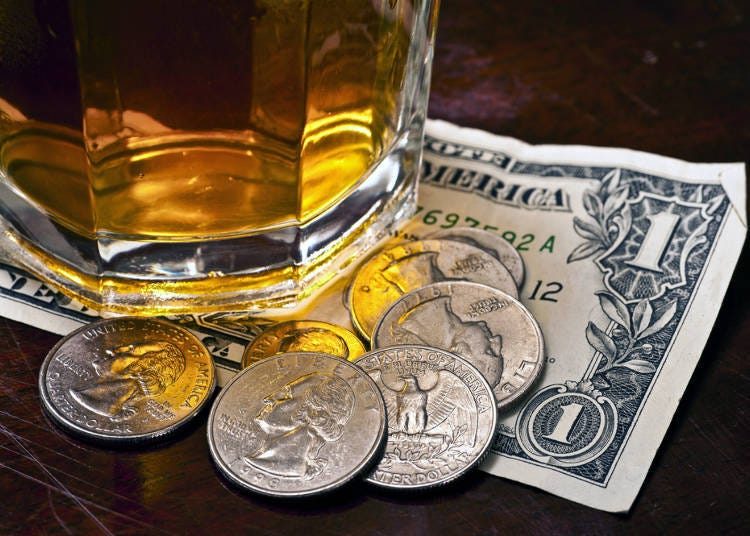
“The first time I went to a restaurant in Japan, I was really shocked that there is no custom of tipping. I tried to tip my waitress multiple times but she just made a distressed face and kept refusing it. In America, I tip to express my feelings about the service, so I really was a bit culture-shocked when I wasn’t able to do that in Japan. On the other hand, tourists are looked at strange when they do not tip the staff in the States. A wait staff’s salary is generally pretty low so I feel sorry that they cannot earn tips in Japan...”
4. Why Is There Always Only Free Size?!

“I always have trouble with the size of clothes in Japan. Why is there sometimes only “free size”/”one-size-fits-all” available? What does “free size” even mean?! (laughs) Obviously, it’s not made to be worn by everyone, so I feel like it’d be better to properly write the size on the garment. In America, there’s usually at least S, M, and L to accommodate to people’s different body shapes, but usually, there are number sizes. I wish more stores in Japan had different sizes.”
5. Japan is Safe – But Are People Careless?
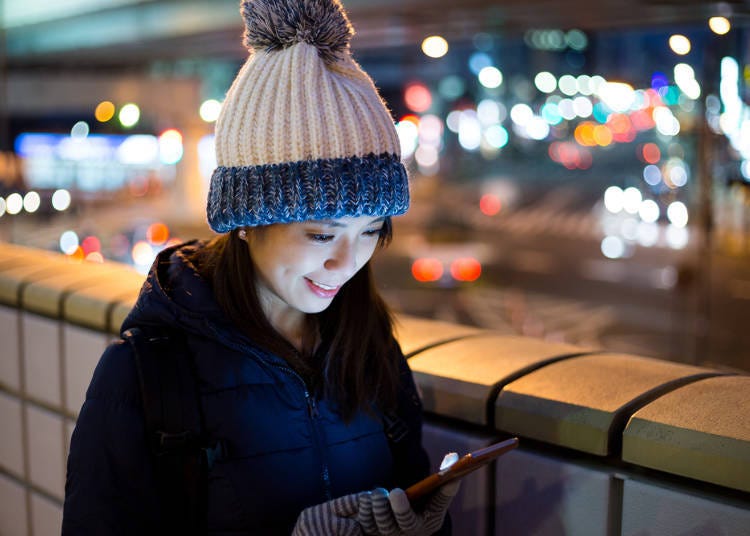
“Compared to New York’s and other subways, I am glad that Japan is really safe. I can go out drinking until late at night here without worrying. Walking home alone late at night seems rather unthinkable in some areas of America. Here, I see people sleeping on the train or leaving their groceries in the basket of their bike without a care in the world. To me, this seems pretty careless.”
6. Being Naked in Front of Others
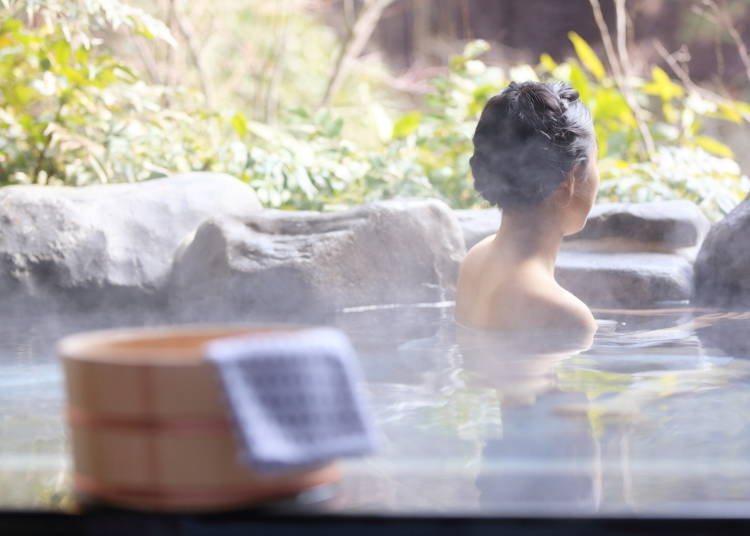
“Japan’s hot spring and public bath culture is somewhat hard to get used to. Americans can be surprisingly shy when it comes to being naked in front of others, to a point where we generally would be uncomfortable being naked with family members. Even when I was a kid, I don’t think I ever shared the bath with my parents. It’s unthinkable to me that young boys go to a women’s bath, especially ones that are old enough to be elementary schoolers! Now I’ve gotten used to visiting various onsen, but it was definitely a culture shock the first time I went!”
7. Japanese Toilets – They’re not that Clean!?
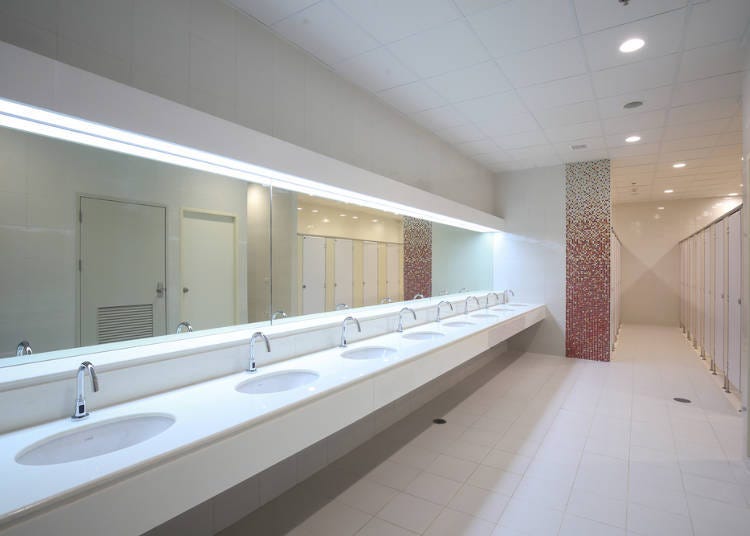
“’Japanese toilets are so clean!’ is something that you certainly hear a lot. Is that so? I feel like people have their own standards about a clean and a dirty toilet. For me, the thing that stands out isn’t the toilet but rather the lack of soap in a lot of restrooms. How can a restroom really be clean if there’s no soap?”
8. Japanese School Uniforms, Actually a Good Idea!
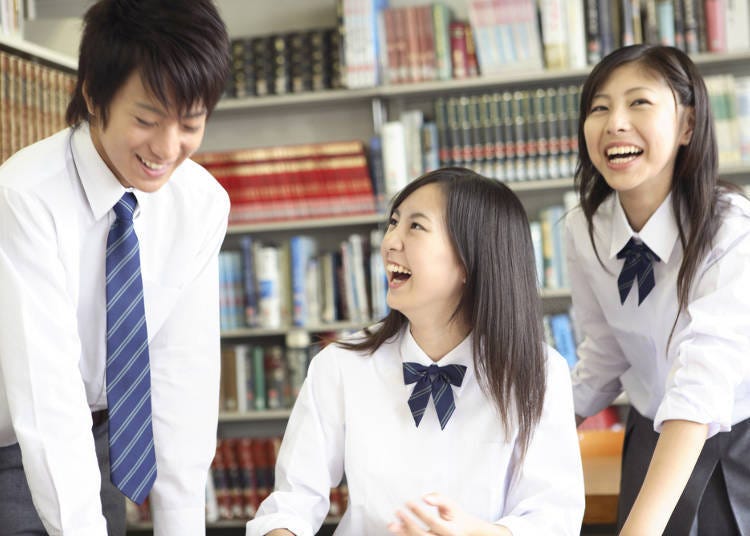
“I think Japan does school uniforms right. Kids don’t have to deal with clothing issues! In America, most junior highs and high schools don’t have school uniforms, so there is sometimes the issue of bullying over appearance. Kids who can’t afford nice clothes can become a target, so I think school uniforms eliminates a lot of the pressure. Many of the schools that do have school uniforms are usually private and thus a privilege for kids from wealthy families. When you see someone in a school uniform in America, you just assume that they’re either rich or attending a Catholic school.”
9. Japan, Don’t Work so Much!
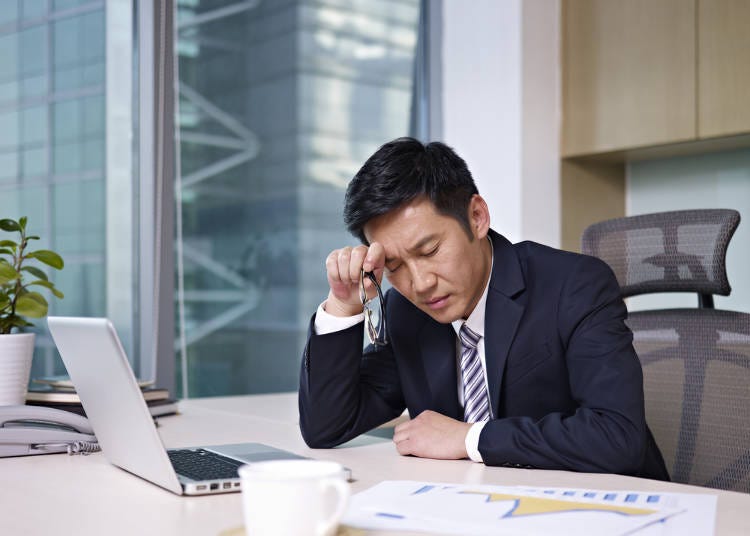
“Why do you go to work when you have a cold? The salarymen that cough on everybody without a mask in crowded trains really bother me. In America, it’s common courtesy to stay at home if you’ve caught a cold. But people in America also don’t work as much as Japanese people, and the work hours in Japan are also too long. On top of that, women who work full-time are still in charge of the entire household... that is a culture shock for me. The standard that men’s only responsibility is to go to work is still rather prevalent, and I wish that Japan made faster strides towards gender equality.”
10. The Japanese People are Polite in the Most Curious Places!
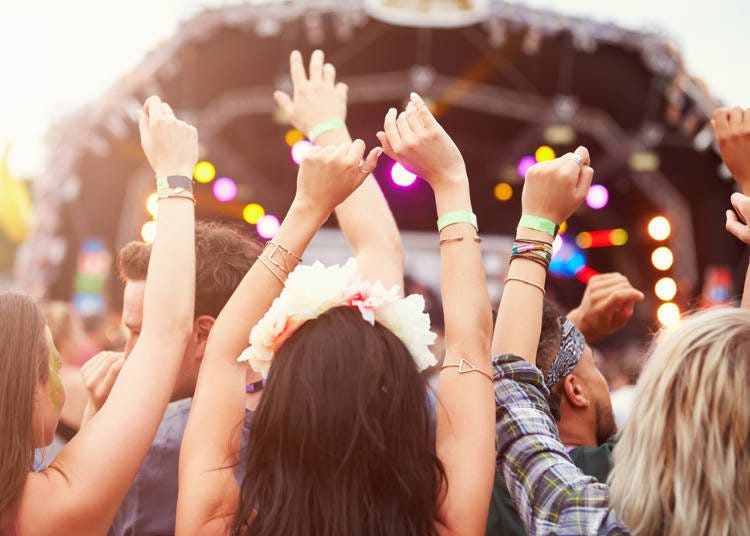
Last but not least: Japanese concerts!
“When the band talks between songs, the Japanese audience listens very quietly. That certainly is a strange feeling for someone from America. As soon as a band starts their performance, an American audience gets super excited immediately. It’s interesting when artists from abroad come to perform in Japan, they always seem surprised by how quiet the Japanese fans are and say: ‘Where’s the excitement?!’”
School uniforms, live venues, and peanut butter – Japan has a lot of little peculiarities that can seem weird, both in a good way and in a not so good way. What kind of things did come to your mind first?
*Prices and options mentioned are subject to change.
*Unless stated otherwise, all prices include tax.
Popular Tours & Activitiess
Recommended places for you
-
Goods

Yoshida Gennojo-Roho Kyoto Buddhist Altars
Gift Shops
Nijo Castle, Kyoto Imperial Palace
-

Kambei Sannomiyahonten
Yakiniku
Kobe, Sannomiya, Kitano
-
Appealing

Rukku and Uohei
Izakaya
Sapporo / Chitose
-

Kanzenkoshitsuyakinikutabehodai Gyugyu Paradise Sannomiya
Yakiniku
Kobe, Sannomiya, Kitano
-

Jukuseiniku-to Namamottsuarera Nikubaru Italian Nikutaria Sannomiya
Izakaya
Kobe, Sannomiya, Kitano
-

ISHIDAYA Hanare
Yakiniku
Kobe, Sannomiya, Kitano
-

Planning Your First Ski Trip to Japan? Here's Everything You Need to Know
by: Marco Blasco
-
Ad

Japan’s Land of Yokai Monsters and Spooky Stories! A Deep Journey to Mysterious San’in (Tottori & Shimane) for Seasoned Travelers
-
Ad

The Whisper of a 1,300-Year-Old History: Meet the Other Face of Nara at Night
by: Shingo Teraoka
-

Farewell, Heavy Suitcases! Keisei Ueno’s New Service Makes Your Last Day in Tokyo Totally Hands-Free
by: Guest Contributor
-

To the Holy Land of Kawaii! Odakyu Tama Center Station Is Becoming a Dreamy Sanrio Wonderland
by: Guest Contributor
-
Ad

The Latest Guide to "Tourism Mobility": Traveling Japan More Freely. What exactly are Japan’s version of ride-sharing and transit deserts?
-

'Thought I'd Die in Japan' - 8 Cases of Reverse Culture Shock Discussed by Taiwanese Living in Japan
-

These 18 Things to Do in Hakodate Will Make You Fall in Love With the Northern Wonderland
by: Guest Contributor
-

'Japanese People on Trains...' Italian Woman Surprised by Japanese Rules
-

Otaru Travel Guide: Inside Hokkaido's Leading Destination (Sightseeing, Food, and Shopping Tips)
-

10 Best Hotels Near Kyoto Station: Budget-friendly, Perfect for Kyoto Sightseeing
-

'Big Face?!' Americans Share About Their Quirky Experiences in Japan
- #best sushi japan
- #what to do in odaiba
- #what to bring to japan
- #new years in tokyo
- #best ramen japan
- #what to buy in ameyoko
- #japanese nail trends
- #things to do japan
- #onsen tattoo friendly tokyo
- #daiso
- #best coffee japan
- #best japanese soft drinks
- #best yakiniku japan
- #japanese fashion culture
- #japanese convenience store snacks












